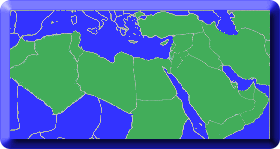
Topics in Middle Eastern and North African Economies
Document Type
Article
Publication Date
5-1-2015
Journal Title
Topics in Middle Eastern and North African Economies
Volume
17
Publisher
Middle East Economic Association and Loyola University Chicago
Abstract
The aim of the paper is to examine the determinants of broadband internet access in Turkey, and in particular, whether the probability of adopting broadband access varies by region. This study also attempts to find out whether there are regional disparities in engaging in various online activities. The 2012 ICT Household Survey that was conducted and administered by TURKSTAT is used. Probit model of probability of adopting broadband access is estimated and results are consistent with the earlier studies: Education, gender, age and household size matter. Besides this, the probability of adoption in West and Central Turkey is higher than the Eastern Turkey. In the second stage of the paper, conditioned on the availability of access, probability of using various online activities is estimated. The results confirm the existence of the regional disparities: Being in the West increases the probability of using online activities that require relatively advanced skills such as searching information and ebanking, while the probability of using time-required entertaining activities is higher for the individuals in the East.
Identifier
2334-282X
ISSN
2334-282X
Recommended Citation
Köksal, Emin and Anil, Bülent, "The Determinants of Broadband Access and Usage in Turkey: Do Regions Matter?". Topics in Middle Eastern and North African Economies, electronic journal, 17, Middle East Economic Association and Loyola University Chicago, 2015, http://www.luc.edu/orgs/meea/
Creative Commons License

This work is licensed under a Creative Commons Attribution-Noncommercial-No Derivative Works 3.0 License.
Copyright Statement
© 2015 the authors



Comments
Presentation of the articles in the Topics in Middle Eastern and North African Economies was made possible by a limited license granted to Loyola University Chicago and Middle East Economics Association from the authors who have retained all copyrights in the articles. http://www.luc.edu/orgs/meea/volume17/meea17.htm